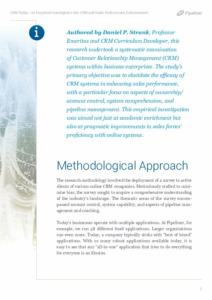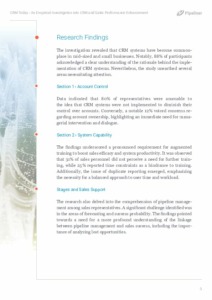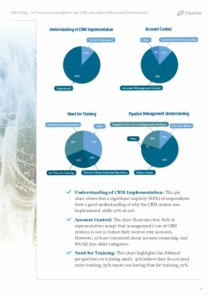CRM and Sales Performance: An Empirical Study
Authored by Daniel P. Strunk, Professor Emeritus and CRM Curriculum Developer, this research systematically examined Customer Relationship Management (CRM) systems within business enterprises. The study’s primary objective was to elucidate the efficacy of CRM systems in enhancing sales performance, with a particular focus on aspects of ownership/account control, system comprehension, and pipeline management. This empirical investigation was aimed at academic enrichment and pragmatic improvements in sales forces’ proficiency with online systems.
Methodological Approach:
The research methodology involved deploying a survey to active clients of various online CRM companies. Meticulously crafted to minimize bias, the survey sought a comprehensive understanding of the industry’s landscape. The thematic areas of the survey encompassed account control, system capability, and aspects of pipeline management and coaching.
Research Findings:
The investigation revealed that CRM systems have become commonplace in mid-sized and small businesses. Notably, 88% of participants acknowledged a clear understanding of the rationale behind implementing CRM systems. Nevertheless, the study unearthed several areas necessitating attention.
Section 1 – Account Control:
Data indicated that 80% of representatives were amenable to the idea that CRM systems were not implemented to diminish their control over accounts.
Section 2 – System Capability:
The findings underscored a pronounced requirement for augmented training to boost sales efficacy and system productivity.
Daniel P. Strunk’s Professional Background:
Professor Strunk’s illustrious career spans roles in the US Air Force, significant leadership positions in the marketing and sales industry, and substantial contributions to academia at DePaul University. His academic contributions, particularly in CRM, through textbooks and curriculum development, have significantly influenced sales strategy and technology education.
























Comments